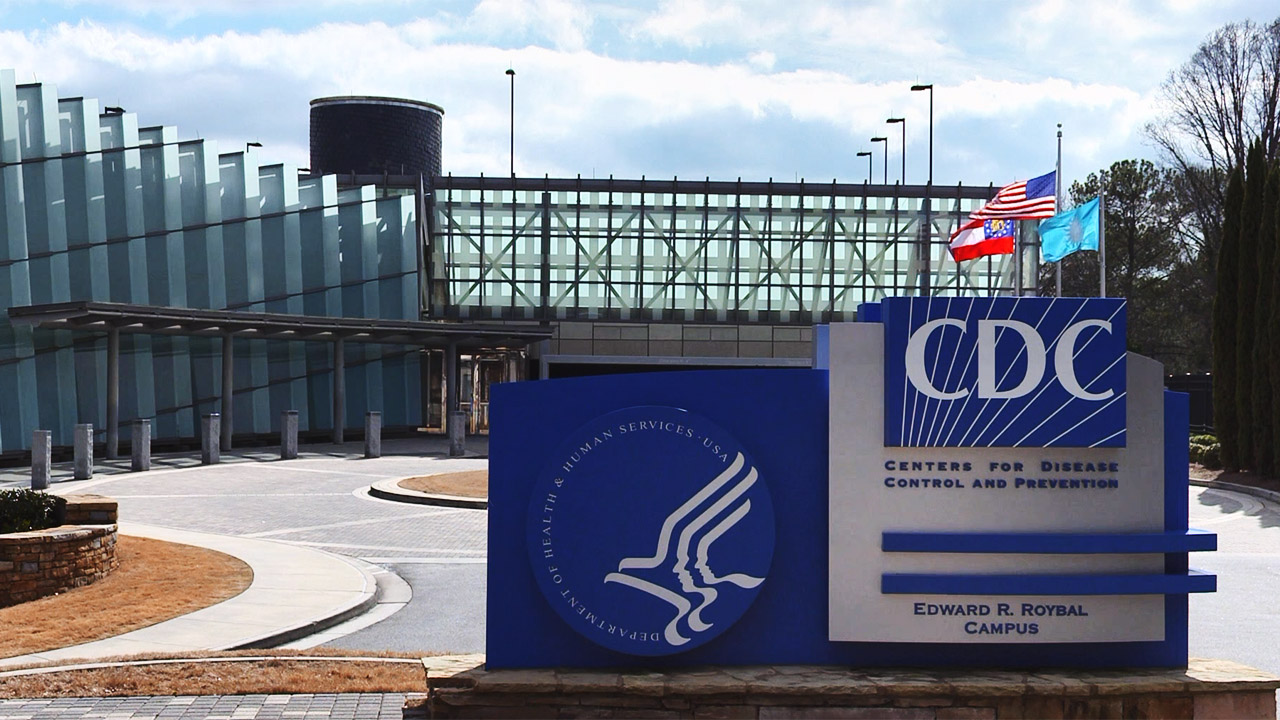Health
Local news in brief: Nov. 26
New condom campaign targets gay men, local gay couple participate in adoption day and more
‘Rubber Revolution’ campaign targets gay men
The D.C. Department of Health launched a new condom awareness campaign last week called “Rubber Revolution,” which includes ads in gay publications urging men who have sex with men to use condoms “every time” to prevent the spread of HIV.
AIDS activists have expressed concern that the city’s existing condom distribution and awareness campaigns didn’t go far enough to attract the attention of high risk groups, including black men and women and gay men. In a statement released on Nov. 18, DOH Director Dr. Pierre Vigilance pointed to the new campaign’s more blunt and explicit messages.
“Big Enuf 4 U,” “A condom Fits Any Head,” and “Get Wrapped Up for the Moment,” are among slogans the “Rubber Revolution” condom campaign will use in its literature and on its newly launched website, HYPERLINK “http://www.rubberrevolutiondc.com/”RubberRevolutionDC.com.
“The Rubber Revolution aims to encourage sexually active people to always use condoms and engage community and business partners to support condom use,” said Mayor Adrian Fenty in a statement. “The District is proud of its aggressive approach to address this issue, and we hope to build on our success as one of the only two cities in the country with a public sector condom distribution program that has provided more than 3.5 million free condoms last year,” Fenty said.
DOH said in its statement that it developed the campaign in response to studies showing that between 40 percent and 70 percent of all D.C. adults and adolescents are not regularly using condoms
The city will continue to fund a separate condom distribution campaign organized by gay D.C. physician Terry Gerace with the involvement of the Whitman-Walker Clinic and the D.C. LGBT Community Center called “FUK!T.”
That campaign has already distributed thousands of packets containing condoms and lube to the city’s gay establishments. Volunteers assemble the packets each week, according to AIDS activist and D.C. medical student Daniel O’Neill, who is involved with the project.
“It’s a step in the right direction,” O’Neill said of the ‘Rubber Revolution’ campaign. “It can’t be as provocative as the ‘FUK!T’ campaign. But this could be helpful with certain groups.”
LOU CHIBBARO JR.
Gay couple participates in D.C. Adoption Day
A judge signed the official papers for a gay male couple to adopt a two-year-old girl they have raised since infancy on Nov. 20 during the 24th Annual Adoption Day ceremony at the D.C. Superior Court.
District residents John Coon, 43, and Josh Tuerk, 42, who have been a couple for 18 years, were among the parents of more than 20 kids whose adoptions were finalized at the ceremony. Their adopted daughter, Gabriella “Ella” Logan, who attended the event, was described by an announcer as having a “captivating and vivacious personality.”
Court officials and the D.C. Child and Family Services Agency said in a statement that the Adoption Day event is intended to “celebrate the joy of adoption and encourage area residents to consider adopting or fostering a child” through the city’s child welfare system.
Same-sex couples have been adopting children in the city since 1994, when the D.C. Court of Appeals issued a ruling clearing the way for such adoptions. Local gay rights attorney Michelle Zavos, who specializes in gay family law, said the city’s child welfare and adoption office is fully supportive of gay adoptions. She noted that qualifications and background checks used in the adoption approval process are the same for same-sex and opposite-sex couples.
“We adopted two boys 10 years ago—Noah and Marcus. They’re both 10,” Coon told the Blade. “And Ella — we decided it was time to add a little princess to join our all-male household,” he said.
Coon, an interior decorator, and Tuerk, who owns and operates a D.C.-based pet care business, live with their children in the city’s Wesley Heights section. They recently bought a farmhouse and farm outside Charlestown, W.Va., where they plan to spend the Thanksgiving holiday.
“All the grandparents will be with us,” Coon said.
LOU CHIBBARO JR.
Anti-gay lawmaker ousted in Maryland
LGBT advocates in Maryland are celebrating the defeat of Republican State Senator Alex X. Mooney in the recent elections. Mooney conceded the contest to Ron Young a few days after most of the absentee ballots were counted. He lost by fewer than 1,000 votes and had represented the 3rd District that includes Frederick and Washington counties.
Since taking office in January 1999, Mooney, 39, was a vocal opponent of LGBT rights. He frequently denounced the LGBT community.
Mooney once said “Homosexual activists have managed to gain legal recognition as a minority, based solely on their lifestyle choices, through so-called ‘hate crimes’ and domestic partnership laws.”
Mooney had been a member of the Senate Judicial Proceedings Committee, which consistently blocked movement on marriage equality and gender identity protection bills.
In each of the three previous races for Senate, Mooney’s margin of victory declined — a trend that speaks to the changing demographics in Frederick.
But the election may have also turned on the work of Equality Maryland, SEIU and a host of volunteers. Equality Maryland’s Field Organizer Aimee Martin was in charge of GOTV (Get Out the Vote) support in Frederick County. She turned out approximately two-dozen Equality Maryland supporters to work in the Frederick area each weekend during October through the election.
According to Lisa Polyak, PAC Director for Equality Maryland, the organization provided ground support, such as literature drops, door knocking and phone banks on behalf of all the LGBT-supportive candidates, including Ron Young, Candy Greenway and Ryan Trout in the Frederick area. During the summer, Equality Maryland collected signed statements from 1,200 residents who support LGBT equality in Frederick County. In addition, the PAC contributed $3,000 to Young’s campaign.
Equality Maryland also collected signatures in support of gender identity anti-discrimination and marriage equality at two dozen polling places in Anne Arundel, Baltimore, Howard, Montgomery and Prince Georges counties on Election Day. This resulted in identification of 3,278 voters who were willing to sign their names in support of LGBT equality, including 588 new supporters in the home district of Senate President Mike Miller (District 27).
STEVE CHARING/BALTIMORE OUTLoud
Orange Crush wins football championship
Last Sunday, the D.C. Gay Flag Football League (DCGFFL) held its inaugural league championships. Orange Crush was 0-3 after the first two weeks of the season and then went undefeated for the next five weeks to make it to the championships.
The team lived up to their name and crushed Gang Green by a score of 34-20. The teams started the championship game by trading touchdowns. As Gang Green was driving to score again, Kevin Smith intercepted a pass and it was all Orange Crush for the rest of the game.
Quarterback Brian Moll was voted MVP for the Orange Crush and Brian Sparrow, utility player, was voted MVP for Gang Green.
In the consolation brackets, Rug Burn defeated Golden Wave 14-13 for 3rd place and Blue Ballers topped Hell Marys 40-14 for 5th place. Complete details can be found at HYPERLINK “http://www.dcgffl.org”dcgffl.org.
KEVIN MAJOROS
Health
UNAIDS to commemorate Zero Discrimination Day’s 10th anniversary
UN agency urges global action to protect human rights

As the world marks the 10th anniversary of Zero Discrimination Day; UNAIDS is sounding the alarm on the increasing threats to human rights, calling for renewed efforts to protect the rights of all individuals as a fundamental step towards ensuring health for everyone.
Established by UNAIDS a decade ago, Zero Discrimination Day aims to promote equality and fairness regardless of gender, age, sexuality, ethnicity or HIV status. The progress achieved over the past years is now in jeopardy, however, due to rising attacks on the rights of women, LGBTQ people and other marginalized communities.
UNAIDS Executive Director Winnie Byanyima emphasized the critical link between protecting human rights and safeguarding public health.
“The attacks on rights are a threat to freedom and democracy and are harmful to health,” she said in a press release. “Stigma and discrimination obstruct HIV prevention, testing, treatment and care and hold back progress towards ending AIDS by 2030. It is only by protecting everyone’s rights that we can protect everyone’s health.”
Despite challenges, there has been notable progress.
At the onset of the AIDS pandemic more than 40 years ago, two-thirds of countries criminalized consensual same-sex sexual relations. They are now decriminalized in two-thirds of countries. An additional 38 countries around the world have pledged to end HIV-related stigma and discrimination, contributing to positive changes that include 50 million more girls attending school compared to 2015.
To sustain and enhance these advancements; UNAIDS urges global support for women’s rights movements, LGBTQ rights, racial justice, economic justice, climate justice and peace initiatives. By standing with communities advocating for their rights, the U.N. aims to reinforce the collective effort towards a more inclusive and equitable world.
Zero Discrimination Day is observed on March 1.
Events and activities that will take place around the world throughout the month will serve as reminders of the essential lesson and call to action: Protecting everyone’s health is synonymous with protecting everyone’s rights.
“Through upholding rights for all, we will be able to achieve the Sustainable Development Goals and secure a safer, fairer, kinder and happier world — for everyone,” said Byanyima.
Health
New CDC report finds transgender women at higher risk for HIV
More than 1,600 people in seven cities surveyed

The Centers for Disease Control and Prevention issued a new study report this week that revealed that restricted by employment and housing discrimination and lack of access to needed gender-affirming healthcare for transgender women increasing the risk of contracting HIV.
Researchers reviewed data from a 2019-2020 survey, the National HIV Behavioral Surveillance Among Transgender Women, which found that the demographics of HIV/AIDS have been disproportionally high, especially among Black and Latina trans women, who had experienced employment and housing discrimination coupled with lack of access to gender-affirming healthcare.
The Jan. 25 Morbidity and Mortality Weekly Report was based on data studies of more than 1,600 trans women in seven major urban locales. Participants from Atlanta, Los Angeles, New Orleans, New York, Philadelphia, San Francisco and Seattle were chosen by referrals from people and community-based organizations who knew or were part of the local population of trans women.
The study’s researchers noted: “Employment discrimination occurs at the overlapping nexus of poverty, homelessness, incarceration, health insurance, disability, food insecurity and survival sex work. These issues are interconnected.”
The study stated that trans women’s inability to access quality healthcare, including gender-affirming treatment or access to PrEP, and can expose them to potential incarceration as many turn to “survival sex work” and violence, which increases the risk of contracting HIV.
The study’s author’s pointed out: “When economically marginalized transgender women are refused employment, this refusal cyclically contributes to economic hardships. This analysis …demonstrates the importance of transgender women working and living with dignity and without fear of unfair treatment.”
Health
A Whole New Perspective on Well-Being
The Mather’s team recognizes that everyone’s wellness journey is completely unique to their life experiences and influences.

It’s easy to spot the distinctive, elegant silhouette of The Mather, a Life Plan Community for those 62+ opening this spring in Tysons, Virginia. What is not apparent to the naked eye is The Mather’s unique wellness philosophy, which is literally built into the community.
The Mather’s team recognizes that everyone’s wellness journey is completely unique to their life experiences and influences.
Nature is one of the important factors that contribute to well-being. So The Mather is incorporating biophilic design—a design approach to facilitate access to nature or things that replicate natural patterns. This can include interior spaces with sightlines to a garden, choosing natural wood and stone as interior materials, or incorporating fragrant flowers and plants indoors to spark memories and provide tactile opportunities such as gardening.

“Providing biophilic design within interior settings connects residents to the natural world,” says Mary Leary, CEO and President of Mather, the organization behind The Mather. “Research shows that a connection to nature provides positive benefits to mental states and overall well-being. At The Mather, biophilic design is the intersection of buildings and programs with nature in an urban setting.”
“The Mather is attracting a diverse group of older adults,” says Mary. “As a result, we aim to incorporate wellness practices from around the world, including Wyda movement theory of the Celtic Druids, which helps people achieve harmony with nature and contentment through mindfulness.” This holistic regenerative approach is similar to Qi Gong and yoga, while born in a different part of the world. Mather Institute has a special focus on mindfulness to support older adults’ practice of present moment awareness, which can lead to increased overall well-being, compassion, and joy.
A very different example of a wellness offering at The Mather is the Gharieni Welnamis spa wave bed, which uses computer-controlled vibrational therapy and audio frequencies to train the brain to relax. “The bed increases mindfulness, concentration, and creativity—all of which support our mission of creating Ways to Age Well,SM” says Mary.
These and other personalized ways to wellness will ensure that residents of The Mather can choose from seemingly countless ways to focus on their well-being. In other words, the sky’s the limit!

















